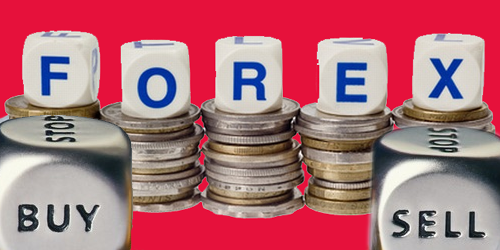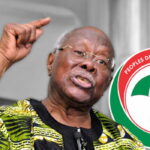

By Babajide Komolafe, Economy Editor
Net foreign exchange inflow to the economy fell 54 per cent, year-on-year, YoY to $15.86 billion in eight months to the end of August.
The decline was driven by a 37 per cent fall in forex inflow into the economy which cancelled the impact of 15.3 per cent fall in forex outflow into the economy during the period.
Financial Vanguard analysis of monthly economic reports of the Central Bank of Nigeria, CBN showed that foreign exchange inflow into the economy dropped to $37.89 billion in eight months to August ending, 8M’22, from $60.37 billion in the corresponding period of 2021, 8M’21, representing 37 per cent, YoY decline.
Similarly, forex outflow from the economy fell to $22.02 billion in 8M’22 from $26.01 billion in 8M’21, representing 15.3 per cent YoY decline.
Consequently net forex inflow into the economy dropped to $15.86 billion in 8M’22 from $34.38 billion in 8M’21, representing a 54 per cent decline.
However, net forex inflow increased month-on-month, MoM by 92 per cent to $3.16 billion in August this year from $1.64 billion in July.
Disclosing this in its monthly economic report for August released last week, the CBN said: “The economy recorded an increase in net foreign exchange inflow in the review month relative to the previous month. Aggregate foreign exchange inflow into the economy increased by 22.7 per cent to $6.40 billion, from $5.22 billion in July 2022. Similarly, foreign exchange outflow through the economy fell by 9.5 per cent to $3.24 billion, from $3.58 billion in the previous month.”
But the net forex inflow through the CBN was negative during the month. “A net inflow of $0.34 billion was recorded through the Bank in August 2022, compared to a net outflow of $0.88 billion in the previous month”, the CBN stated.
Motor Insurance:
Why NAICOM, insurers back-pedalled on planned 50% premium hike
lHike approved, awaiting minister’s approvallOnly 3 million of 12 million vehicles have valid insurance Premium income reverses upward trend, falls 36% in Q2’22
Worried by the impact of inflationary pressure on disposable income of Nigerians, sharp decline recorded in premium income in the second quarter, Q2’22, as well as the preponderance of fake motor insurance, the National National Insurance Commission (NAICOM) and insurance companies have developed cold feet over implementation of the planned 50 per cent hike in premium for third party motor insurance.
The premium for third party motor insurance had been N5,000 for a long time.
But the Insurers Committee, at its meeting in June disclosed plans for a 50 per cent upward review to N7,500 for third-party motor insurance premium that would take effect from September.
The Insurers Committee consists of NAICOM and chief executive officers of underwriting firms.
Briefing the press after the meeting, Vice Chairman of the Sub-Committee on Publicity and Communication of the Insurers Committee, Mr. Segun Omosehin, said: “The regulator has adopted, in principle, the implementation of a reviewed rate in third-party motor insurance in Nigeria. Hopefully, the new rate will take effect from September.”
He added that the team wants to consider the pros and cons, taking views and concerns into consideration before the final decision on the new fee.
However, two months after the scheduled implementation date, the new premium has not taken effect.
The delay, according to insurance executives is due to consideration of the prevailing economic situation, especially rising inflationary pressures.
Speaking to Financial Vanguard, a top executive at NAICOM, said: “The new rate was not implementable in September due to prevailing economic situations coupled with rising inflation.
“Although the governing council of NAICOM board recently approved the new rate and it has proceeded to the Ministry of Finance.
“So the sector is waiting for the Minister to sign before implementation can commence.”
Premium income declines
Financial Vanguard investigations show that reluctance of NAICOM and insurance companies to go ahead with the proposed rate hike might have been influenced by the sharp decline in premium income on motor insurance in Q2’22 after three consecutive quarters of growth.
Analysis of data from NAICOM showed that premium income on motor insurance fell by 36.4 per cent, quarter-on-quarter, QoQ to N12.6 billion in Q2’22 from N19.8 billion recorded in the first quarter, Q1’22.
This is in sharp contrast to the growth recorded in the three preceding quarters, namely Q3’21, Q4’21 and Q1’22.
In Q3’21, premium income on motor insurance went up by 50.6 per cent to N13.16 billion from N8.74 billion. In Q4’21, premium income increased by 6.4 per cent to N14 billion from N13.16 billion. In Q1’22, motor premium income grew by 41.4 per cent to N19.8 billion from N14 billion in Q4’21.
Also discouraging the implementation of the planned rate hike, is the estimated nine (9) million gap between number of vehicles with valid insurance and the number of vehicles plying Nigerian roads.
Out of the 12 million vehicles plying Nigerian roads, only three million have valid insurance, a development insurers attributed to continued patronage of fake motor insurance by Nigerians.
According to insurance executives who spoke to Financial Vanguard, the planned 50 per cent rate hike in third party motor insurance may backfire by pushing more Nigerian motorists into patronage of fake insurance especially in light of rising inflation, reduction in disposable income and increased cost of vehicle maintenance.
Insurers speak
Speaking on the development, Immediate past Chairman of Nigerian Insurers Association, NIA, Mr. Ganiu Musa said: “The number of uninsured vehicles against insured in Nigeria is very discouraging with only three million insured out of 12 million plying our roads.”
Another Chief Executive who spoke on the condition of anonimity said: “We should rather be making moves to ensure that more motorists plug into the insurance sector rather than create policies that could push them away. With the state of the economy, I believe that any increase in motor insurance premium could expand the fake insurance market to our detriment.
“I believe that if every vehicle owner has valid insurance, there won’t be need to increase premium rate as the sector will attract enough premium to settle any claim.”
Also emphasising the need to focus on growing population of insured vehicles as against the planned rate hike, Executive Director, Technical, of an insurance firm , said that majority of vehicles that are not insured use fake motor insurance papers, while others do not have certificates at all, even though the Federal Roads Safety Corps Act requires that every automobile on the road must have, at least, a third-party motor insurance policy.
He said: “Motor businesses can generate over N100 billion premium income annually if all vehicles have genuine insurance. Third party motor insurance is one of the compulsory classes of insurance and the most popular among the six compulsory insurance policies stipulated by the Insurance Act 2003.
“However, with the spike in inflation, there has been a corresponding spike in vehicle maintenance, either at the services/lubricants centre or at the mechanic’s workshop.
“Ever since the post-pandemic market rebound, the automotive supply chain has become costlier, leading to a higher cost of parts replacement and maintenance. Also, as the used car market gets even more competitive, the demand for vehicle repair is also going up, as consumers want to hold onto vehicles longer, unable to find replacements within their price point.”
Also speaking, former President of the Nigerian Council of Registered Insurance Brokers, NCRIB, Mr. Babajide Olatunde-Agbeja, said the industry is embittered about what it is losing to insurance racketeers and non-insurance of vehicles.
Olatunde-Agbeja said: “As operators in the insurance industry, we are embittered about the state of motor insurance in the country. However, any increase in premium at this time could work against us.
“So I recommend that the insurance industry continue to carry out more awareness on the benefits of insurance to the generality of Nigerians.”
The post Net Forex inflow falls 54% to $15.86bn in 8mths appeared first on Vanguard News.




